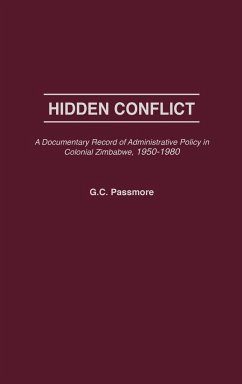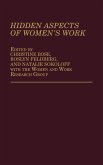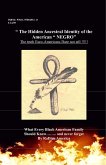Drawing heavily on material from the archives of the governments of colonial Zimbabwe, this invaluable reference tool examines administrative policy concerning issues such as land conservation, community development, and land apportionment to Africans. Much of the original documentation collected here was destroyed by the Rhodesian Front government before Zimbabwean independence in 1980. As a source book, containing circulars, directives, legislation, official reports, and minutes from office holders, Hidden Conflict provides an inside look at administrative policy in colonial Zimbabwe and the intentions behind it. Through her examination of these documents, Passmore highlights the roles played by colonial civil servants in influencing events in Zimbabwe. The issues, controversies, and concerns the author depicts in her book remain relevant for postcolonial Zimbabwe and many other African countries today.
Hinweis: Dieser Artikel kann nur an eine deutsche Lieferadresse ausgeliefert werden.
Hinweis: Dieser Artikel kann nur an eine deutsche Lieferadresse ausgeliefert werden.








